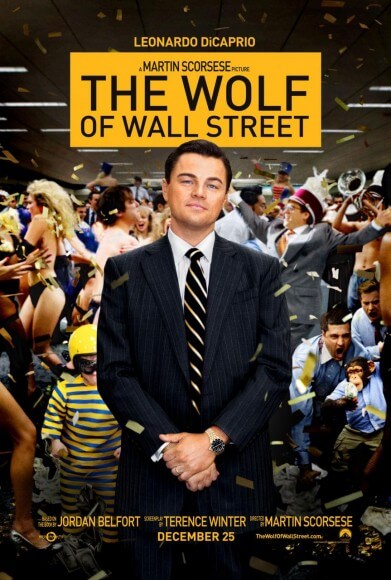
First at the PBS News Hour, of all places, economics correspondent Paul Solman highlights a portion of a book by John Weir Close on the mergers-and-acquisitions (M&A) trend on Wall Street in the ’70s. The PBS piece is titled, “The Lucky Sperm Club: Jews, M&A and the Unlocking of Corporate America.” Close writes that Joseph Flom called his associates “the Lucky Sperm Club”:
[I]n the late 20th century, M&A was driven by two Jews, Marty Lipton and Joe Flom, who had simultaneous epiphanies about how to take advantage of new government regulation — in other words, how to turn the rules into an instruction manual for transforming the buying and selling of companies into a profession in itself. But rather than seek to buy, sell or keep companies themselves, they became the Sherpas, interpreting regulatory maps and making up new law as they went along.
As recently as the 1970s, Jews and all others not of the white Anglo-Saxon Protestant ascendancy were still excluded from any position of real power at the bar, on the bench, at banks and in boardrooms. America was still an agglomeration of ghettos: Italians knew Italians, Jews knew Jews, Poles knew Poles, Irish knew Irish, WASPs barely knew any of them existed and the Cabots spoke only to God.
“When I came to New York in the ’70s, the WASP aristocracy still reigned,” the Lucky Sperm Club’s Shapiro recalls. “You didn’t see an Asian face above Canal Street. You didn’t see a black face in a law firm unless it was the mailroom. You certainly didn’t see an Hispanic face. Swarthy Italians and Jews? They were not people you dealt with.”
Yet again, as happened so often in their history, the Jews somehow found their own methods to carry them past such barriers, and once those blockades were destroyed, other demographics followed.
But it was primarily Jews who first became expert in taking over companies against the will of their existing executives. The white-shoe law firms and elite investment banks found this simultaneously distasteful and tantalizing in the same way medieval merchants viewed the lending of money at interest. Both groups were discouraged from joining in one of the most profitable enterprises of their day: the old merchants by, among other things, an ecclesiastical ban on the practice of usury; the new lawyers, by the establishment’s social codes of behavior. Again, the Jews found themselves in control of an industry that then perpetuated the stereotype: the omnipotent, venal Machiavellian, hands sullied by the unsavory. But the business of takeovers paid the rent. And then some…
“There was this sense that we are the nobility. And who is this — you should excuse the expression — Jew from Philadelphia …Who is he to interrupt our garden party in our Fourth-Floor-of-Abercrombie-&-Fitch-decorated headquarters in the city’s fanciest building with the best views of Central Park in New York?” says Stu Shapiro about the predominant attitude within the Revlon kingdom they were trying to acquire.
“This Jew” — Shapiro’s client — was Ronald Owen Perelman, salivating on his cigar, blurting out his ungrammatical fragments, daring to attack august Revlon,
Then there’s this excellent piece by Rob Eshman at the Jewish Journal on the film, “The Wolf of Wall Street,” and the fact that Scorsese leaves out the fact that the mad trader at the center of the story is Jewish, but Eshman can’t.
Scorsese chose not to deal with the fact that Jordan Belfort is Jewish. Although some of the characters in “Wolf,” like Jonah Hill’s Donnie Azoff, are clearly portrayed as Jews, even to the point of wearing chai necklaces around their coke-frosted necks, Belfort, with his Anglo looks and Frenchy name, is left to be simply American. I get it: To do otherwise might give the movie a whiff of anti-Semitic caricature. Scorsese feels much safer depicting the Italian-ness of his violent mobsters than the Jewishness of his greedy con men.
But, just between us, let’s talk about Belfort-the-Jew — let’s go there. In the movie, you never really understand how someone so gifted can be so morally unmoored. But in his memoir, upon which the movie is based, whenever Belfort refers to his Jewish roots, the diagnosis becomes more apparent.
He is a kid from Long Island. His dad, Max, grew up “in the old Jewish Bronx, in the smoldering economic ashes of the Great Depression.” Belfort didn’t grow up poor by any means, he just wasn’t rich enough. The hole in him wasn’t from poverty, but from desire for acceptance. The “blue-blooded WASPs,” Belfort writes, “viewed me as a young Jewish circus attraction.”
Belfort had a chip on his shoulder the size of a polo pony, and so did everyone he recruited. They were, he writes, “the most savage young Jews anywhere on Long Island: the towns of Jericho and Syosset. It was from out of the very marrow of these two upper-middle-class Jewish ghettos that the bulk of my first hundred Strattonites had come….”
It’s not complicated, really. Poor little Jordan wanted to show those WASPs whose country clubs he couldn’t join that he was smarter, richer, better. What he failed to understand is that just about every Jew, every minority, shares the same impulses. But only a select few decide the only way to help themselves is to hurt others.
Belfort, like Bernie Madoff, is an extreme example. These are guys who feel they have nothing, they are nothing, so they will do anything to acquire everything. They cross a pretty clear line and just keep going.
The question that gnaws at me is whether there’s something amiss in the vast gray area that leads right up to that line. Are the Belforts and Madoffs unnatural mutations, or are they inevitable outgrowths of attitudes that have taken root in our communities? We don’t, as a community, like to talk about money and wealth and how to acquire it and how to spend it. A Madoff affair happens — a crime that devastates thousands of people, businesses and philanthropies, many of them in the heart of the Jewish community — and we hardly speak about it anymore….
What’s the right way to make money? How much is enough? How much must we share, and with whom? We are blessed to be living at a time of unparalleled Jewish power and wealth, and it makes us so uneasy, we prefer to talk about everything but.
Hat’s off to Eshman for saying what so many in the Jewish community know about and are afraid to broach, the ways that wealth has transformed American Jewish culture, and cheapened it. As Dershowitz wrote in The Vanishing American Jew, success has presented a deep challenge to Jewish identity. And as Nick Saban said last night after the college football championship game, success breeds complacency (referring to his team Alabama’s fall).
Talking about “unparalleled Jewish power and wealth” is safe territory now because the Jewish establishment is coming to an end, and without pogroms. The Jewish century is over; it is fizzling out because young Jews lack the outsider energy both these pieces say motivated their parents. Item: Eliot Spitzer and Anthony Weiner both destroyed promising careers for lack of discipline. Item: Opposition to Edward Snowden (you’re no Ellsberg) comes from establishment stalwarts, many of whom are Jewish, many of whom supported the Iraq war. We’re a lot like the WASPs after the Vietnam War destroyed their cultural authority. And of course the nature of the establishment is changing: de Blasio and Obama represent a new multicultural establishment that must be more responsive to diverse constituencies.


De Caprio says the move does not condone his character’s conduct, it condemns it. So why didn’t they show a few scenes depicting the victims of his foray? Getting to hear a little of this from a film phone voice or two is not enough in the face of the seductive life style depicted constantly on the screen. Oh what webs we spin when we deceive even ourselves.
Not so sure that all these are good for the Jewish or for the Gentiles. The backdrop of these colossal events once understood and spread across both by the media and by the whispering sounds in the churches , over the dinner table ,at social gatherings ,or at the teacher -parent meetings in middle school of Maine or Arkansas -this may give rise the the petty mindedness,hatred,anger,and a smoldering low intensity tendency to blame the Jews in times of adversities that have already started visiting the “WASPS”- look at the rise of the far right in Greeks and tendency to blame the colored and the Jews people alike .
People look for simple solution and end up making it complex beyond recognition. Disappearing democratic checks and balances will mutate to tyrannical imposition of mob revenge .
If Iraq war turned out to be a success as the previous one,no one would have bothered to write about AIPAC or Israeli lobbies or about the wisdom of attacking Syria or Iran.Deep down Americans know that they have been short changed and sold a lemon car that spends all its energy in sounding the horn.They want to blame somebody.When the crowd slowly wake up to the possibility that an escape hatch exist to release guilt, to wash the shame of failures,and mourn the loss of dreams on conspiratorial ethnic activities ,they would snag that opportunity like the Germans did.
This may not be good.
Discussion concerning the means of acquisition of money by Jews and for the maintenance of the wealth are forbidden topics for non-Jews — if discussed, one thereby becomes a proponent of the Protocols or a promoter of the the trope of “Jewish greedy acquisitiveness” and accordingly an Anti-Semite.
OTOH, when the amassed wealth is used to corrupt politicians to pursue Likudist goals without question, criticism is perfectly acceptable.
I’m nostalgic for “Other People’s Money,” about the elites, manager/owners of old family businesses that had, at some point, gone public but continued to operate as personal fiefdoms against the upstart corporate takeover specialists,
Personally, I rooted for “Larry the Liquidator.”
Actually a pretty nuanced portrait of the conflicts between unions, execs, and owners. However, I don’t recall a Jewish theme in the play.
These days Jews certainly seem more common in law and banking but Jewish lawyers and bankers are on all sides of this.
If Jews are responsible for the current state of the culture on Wall St I wouldn’t advise them to crow about it.